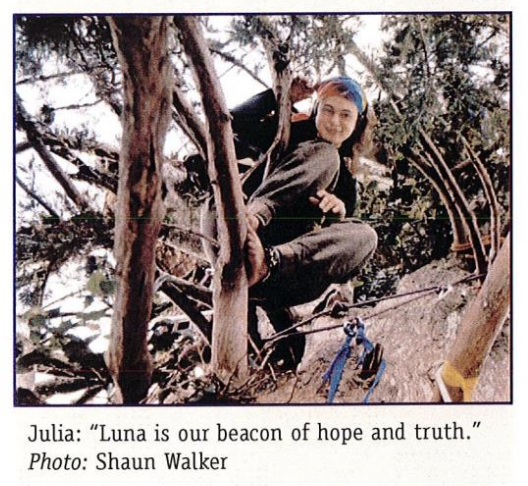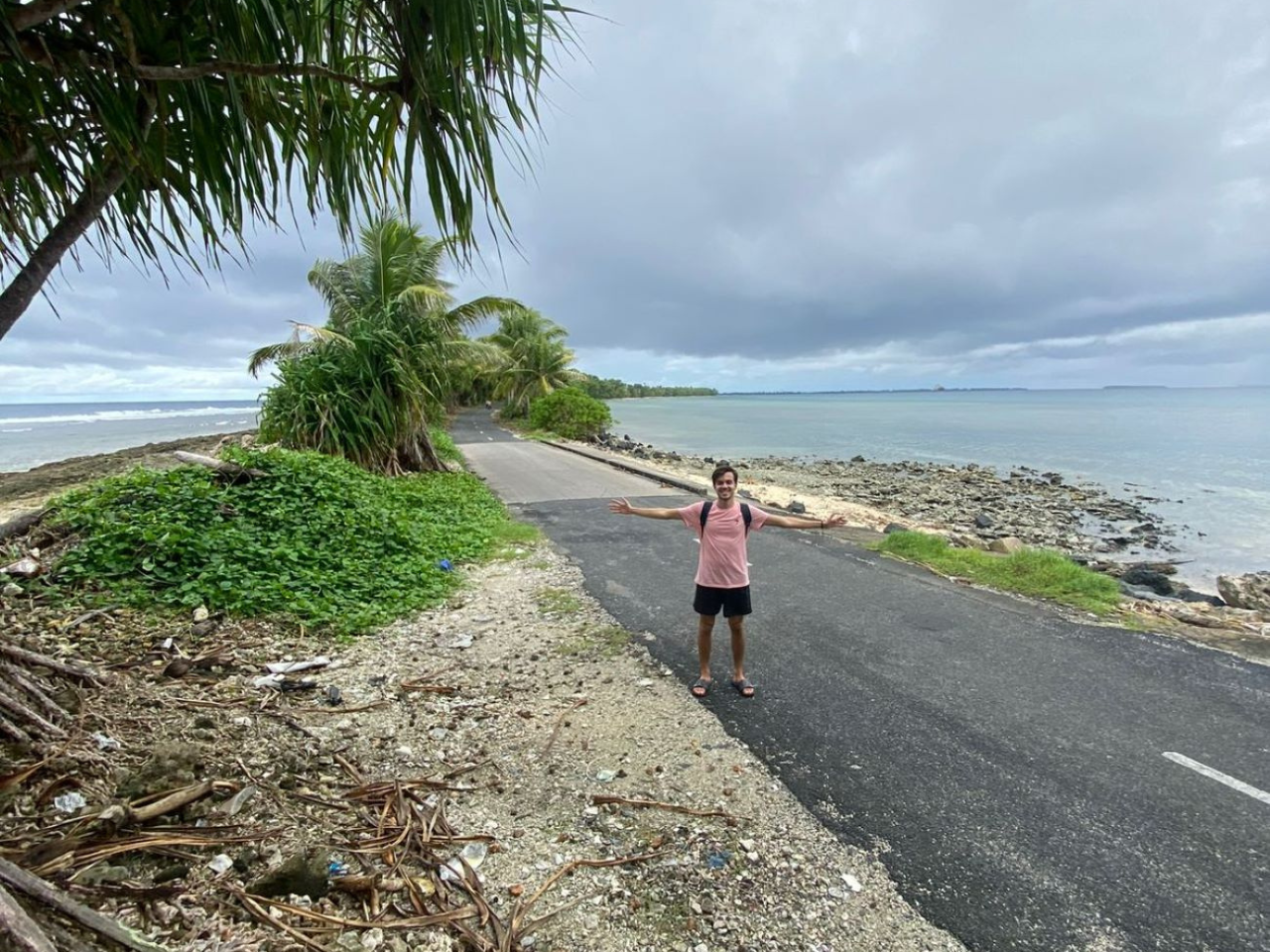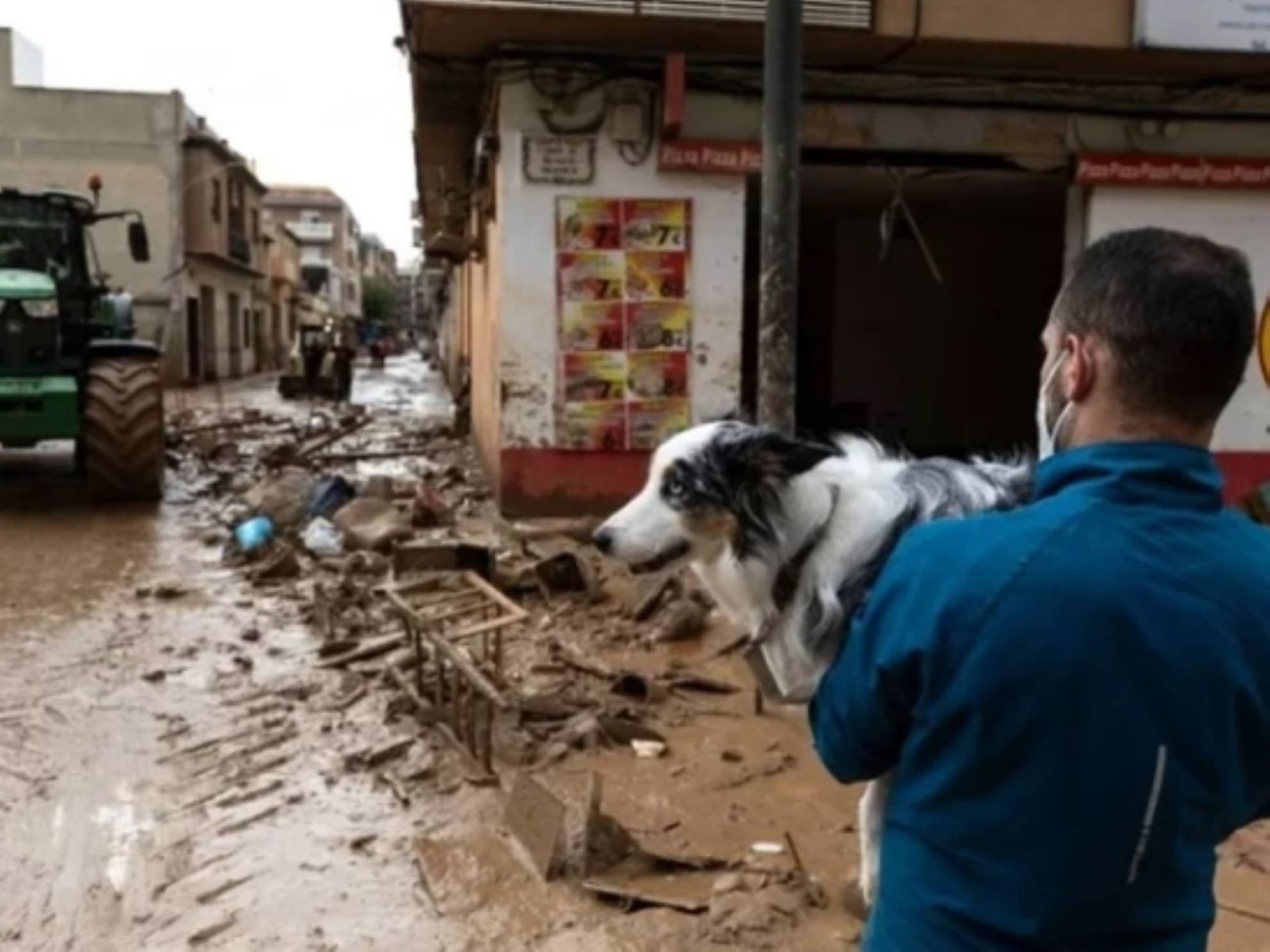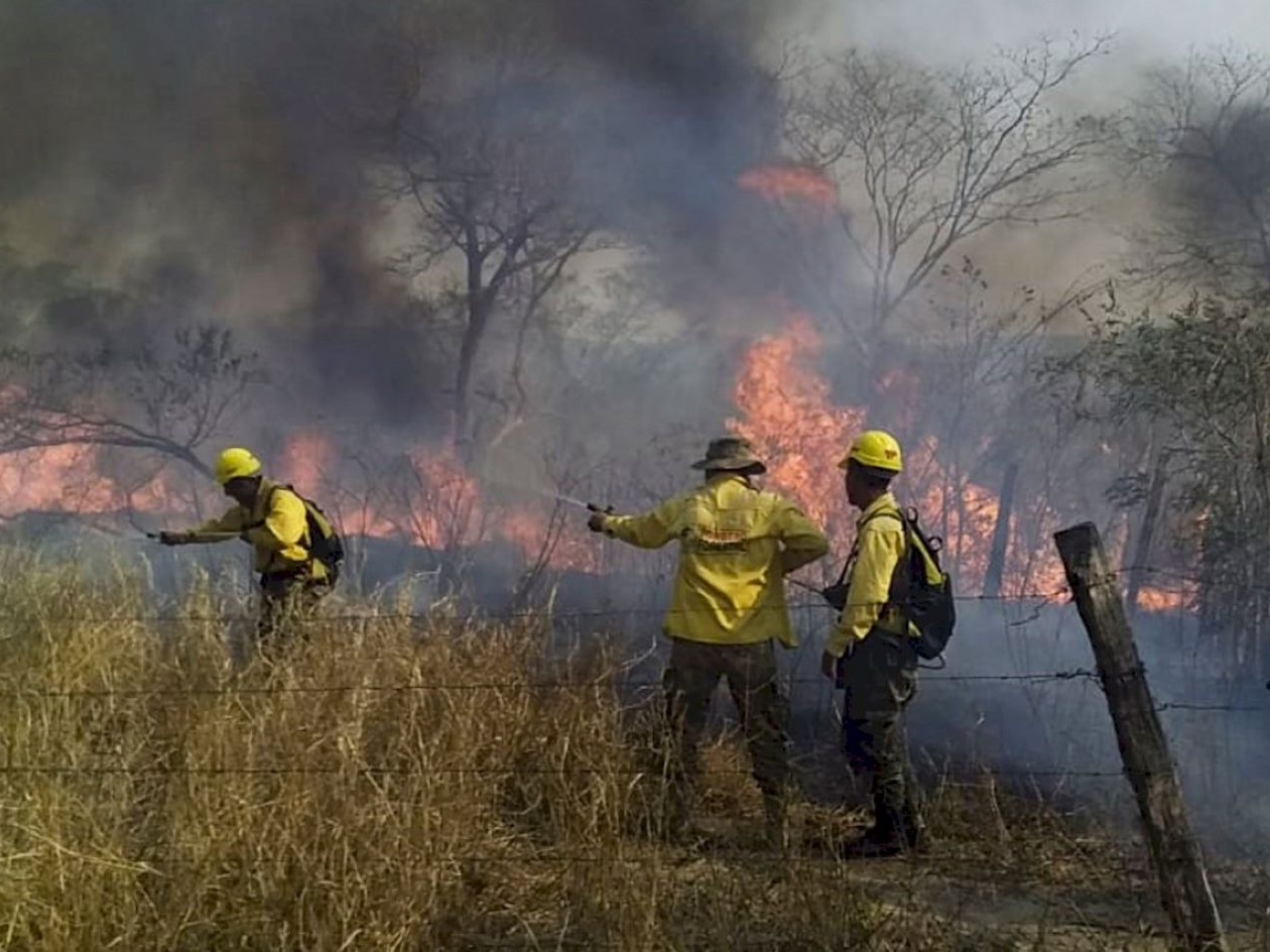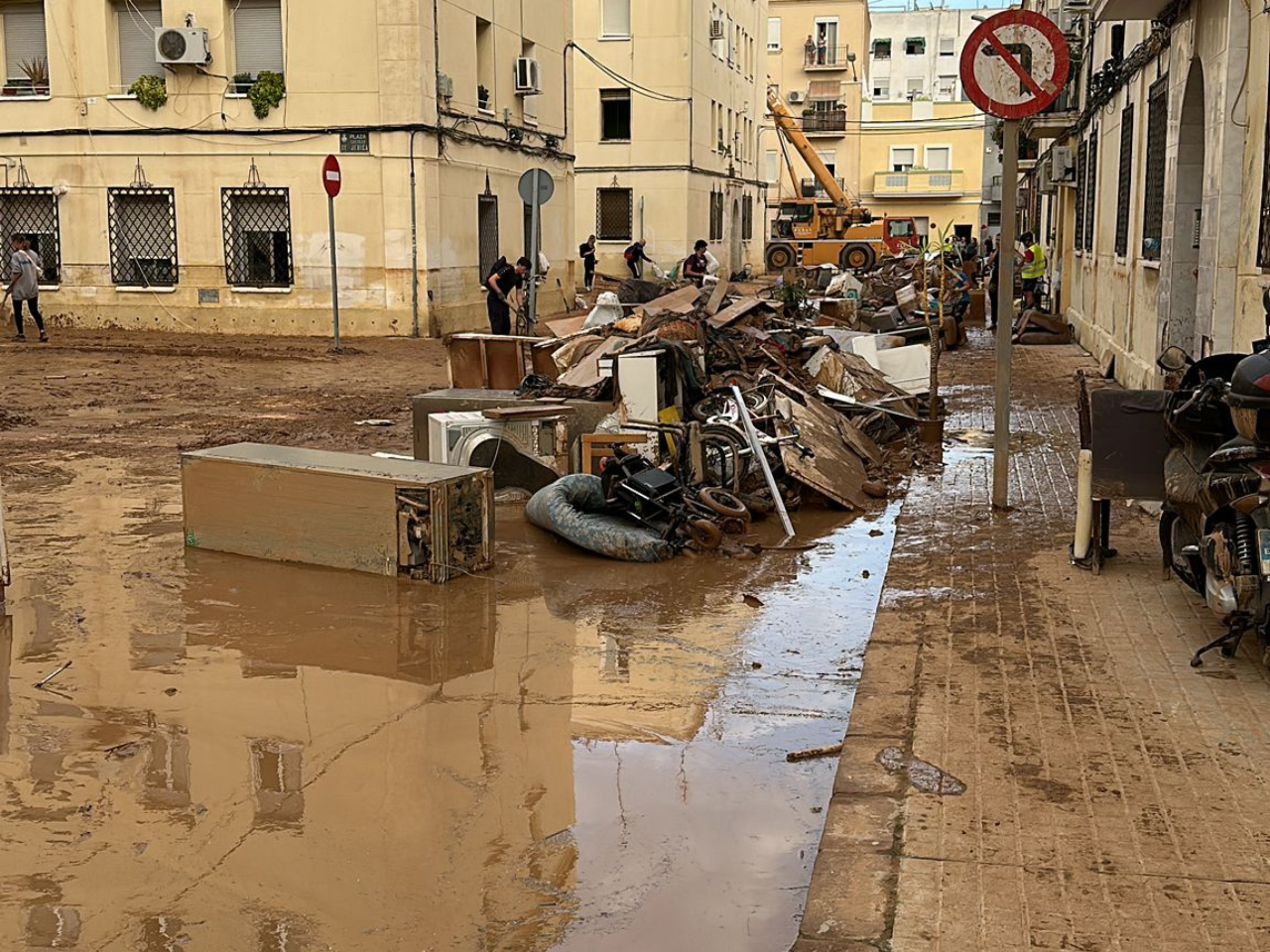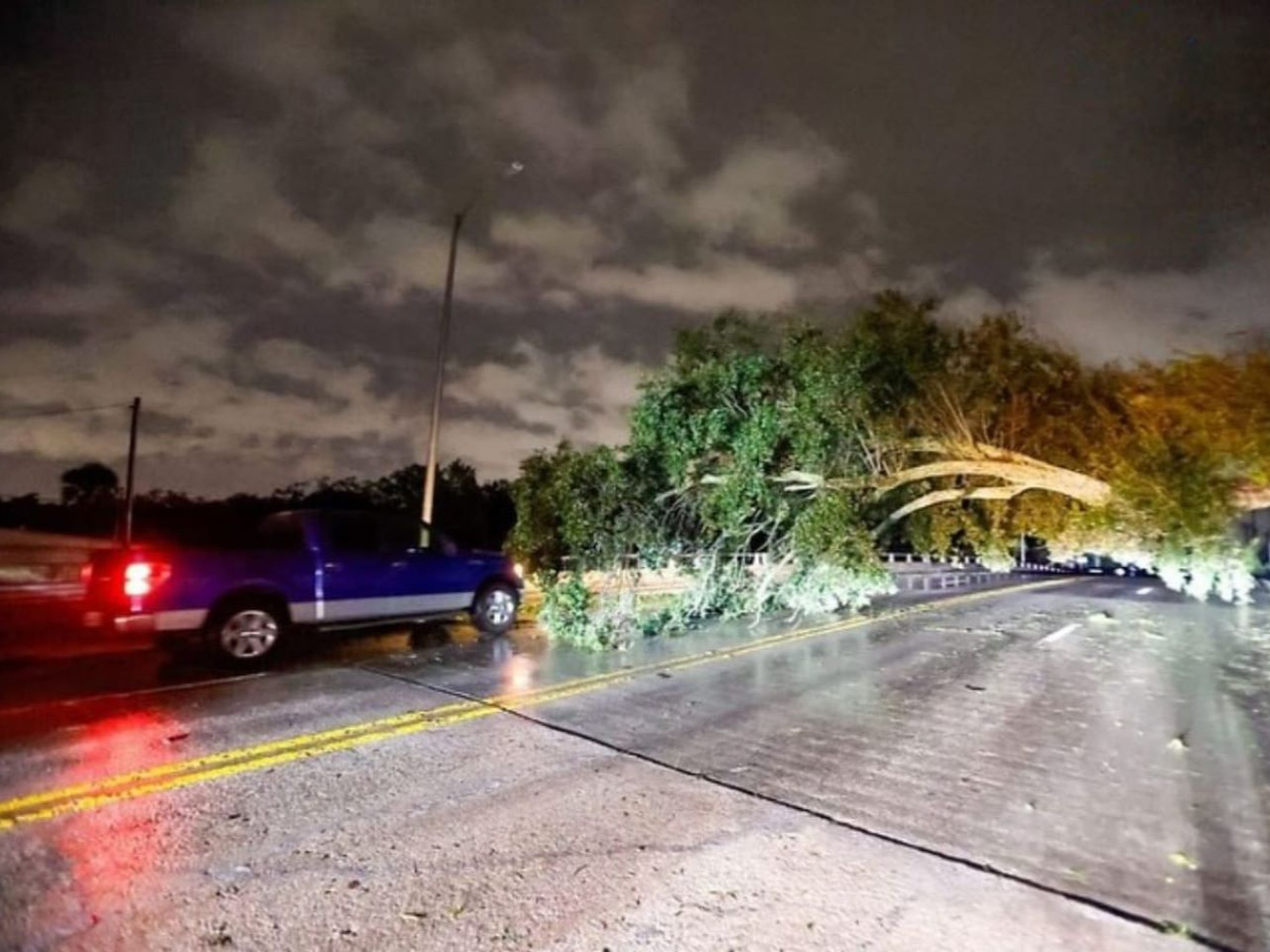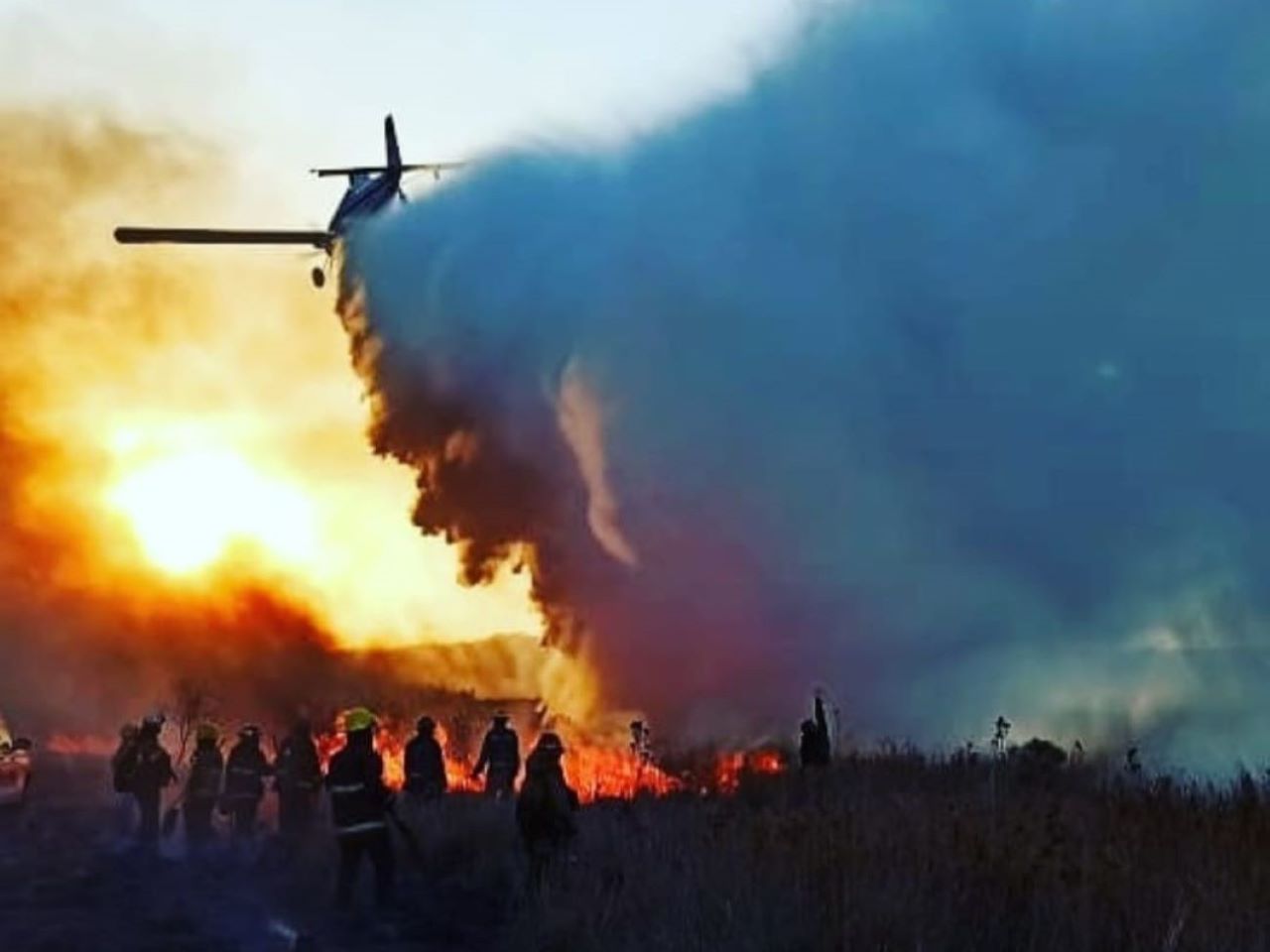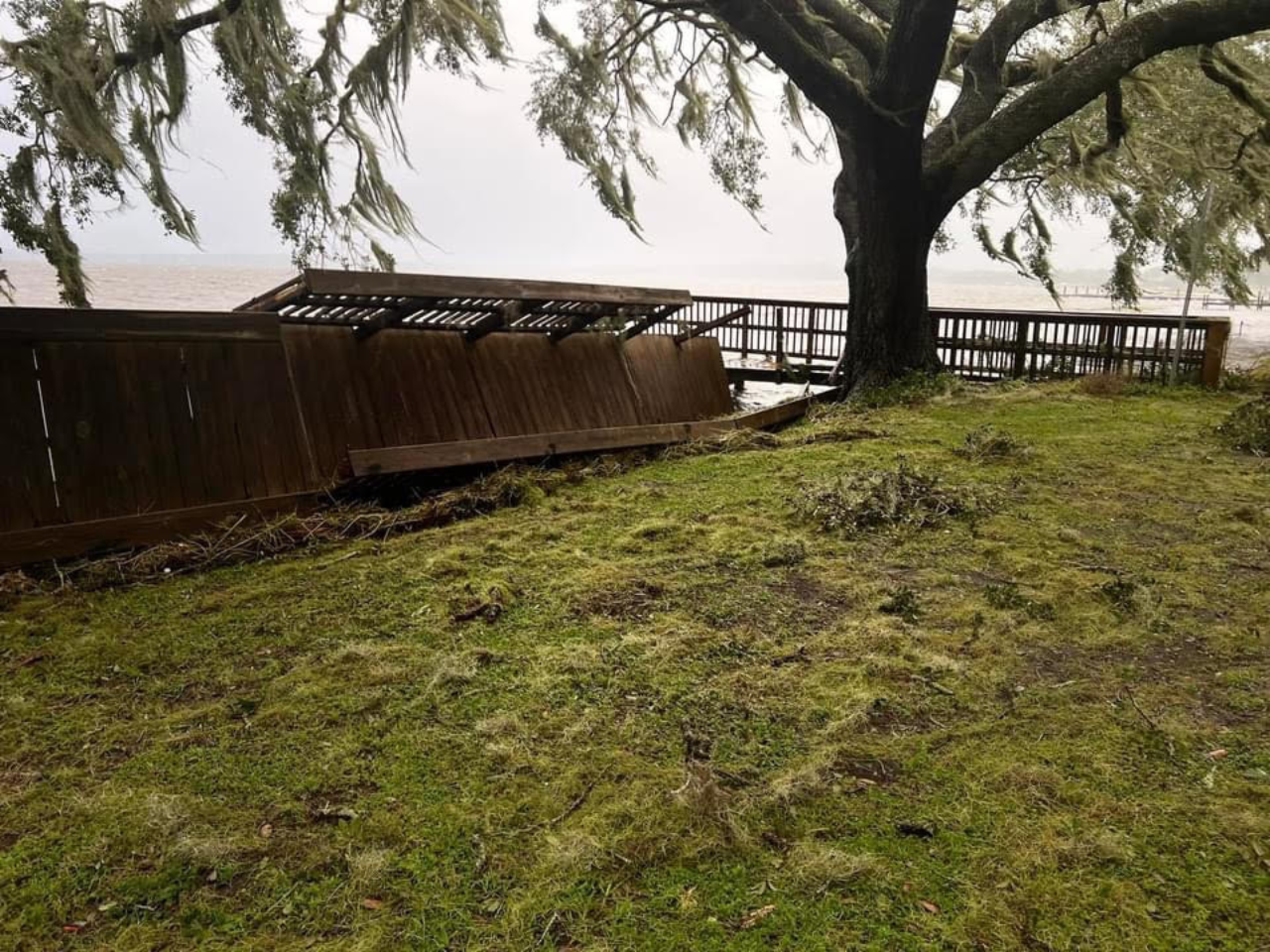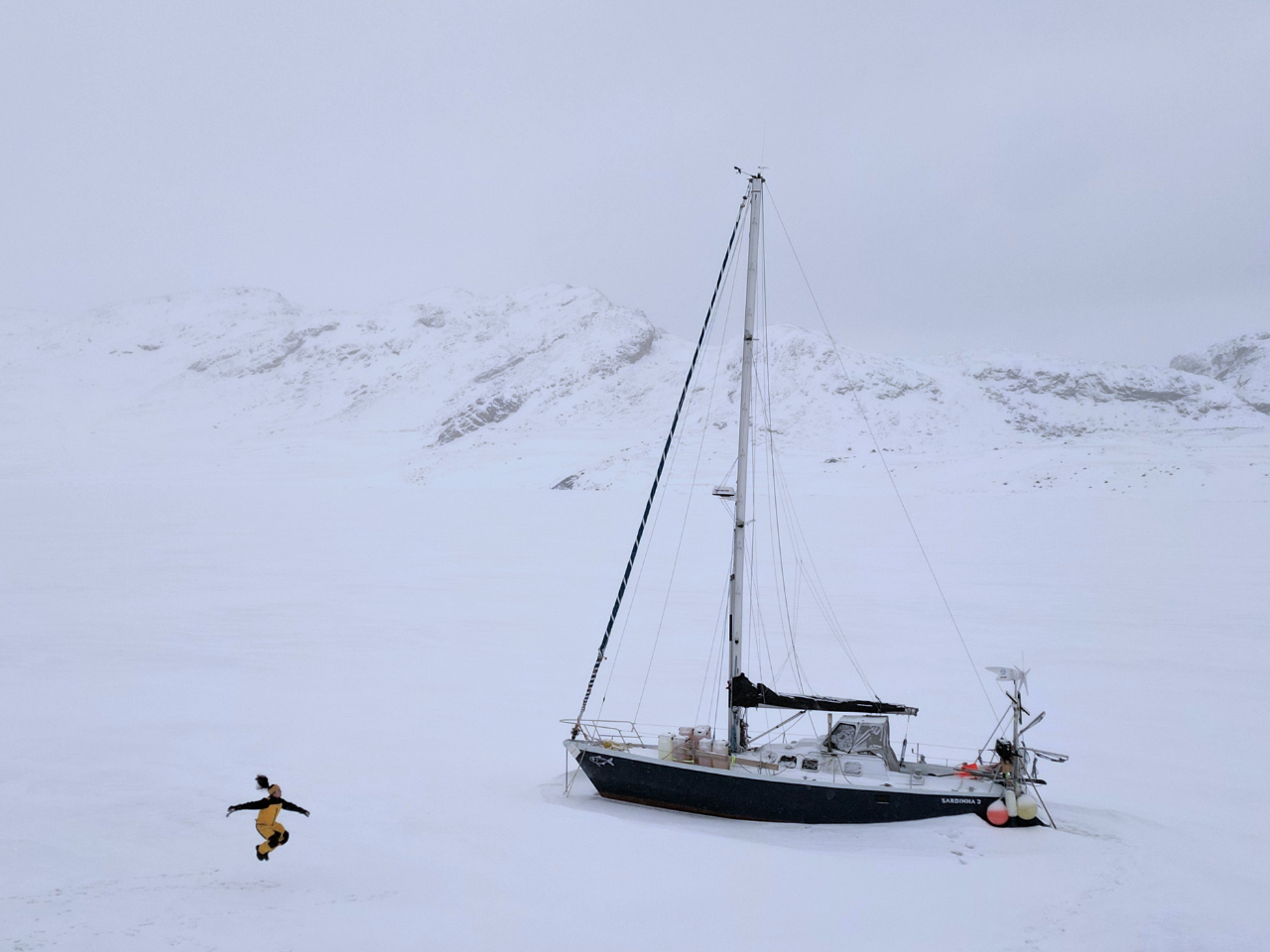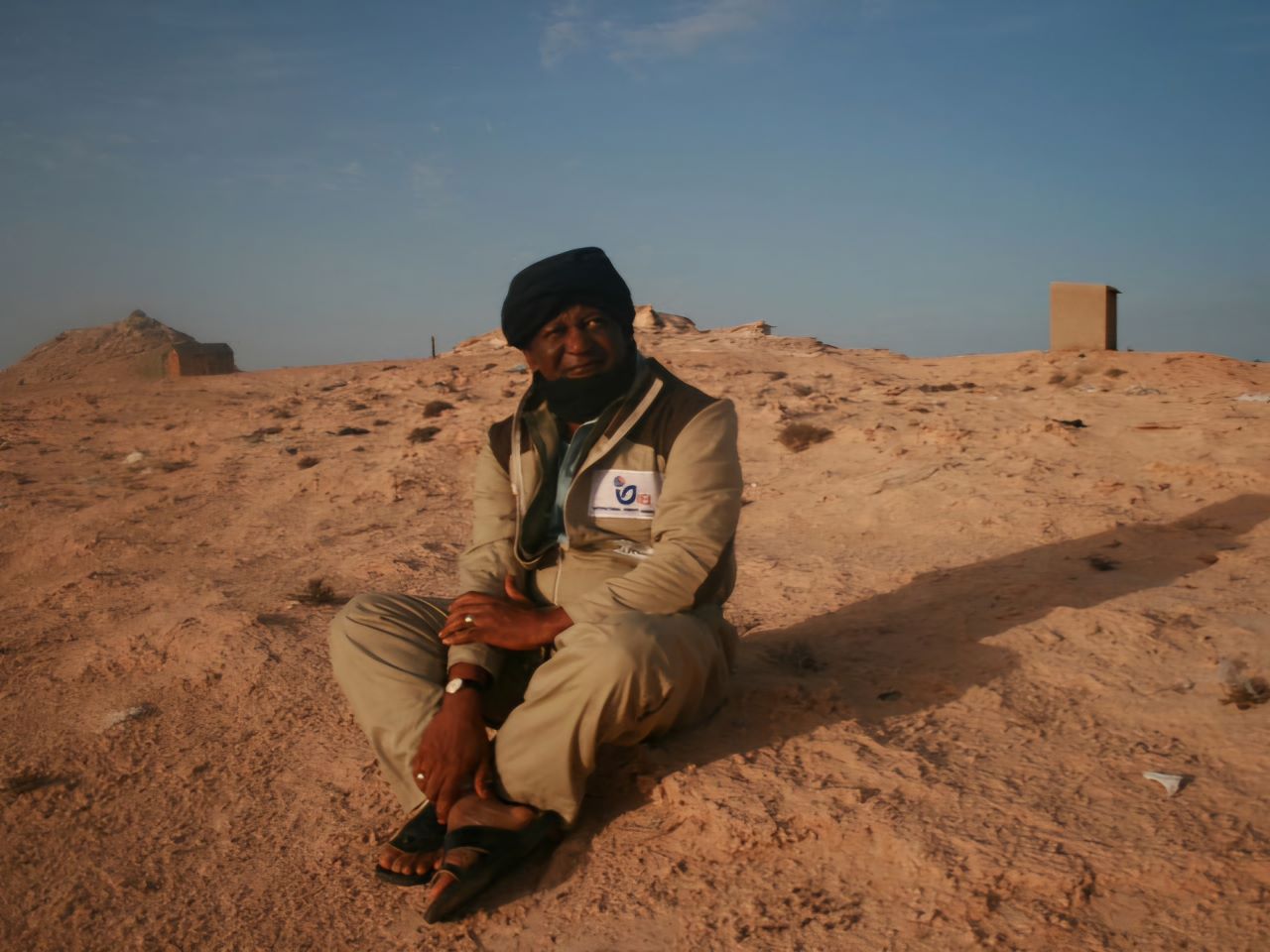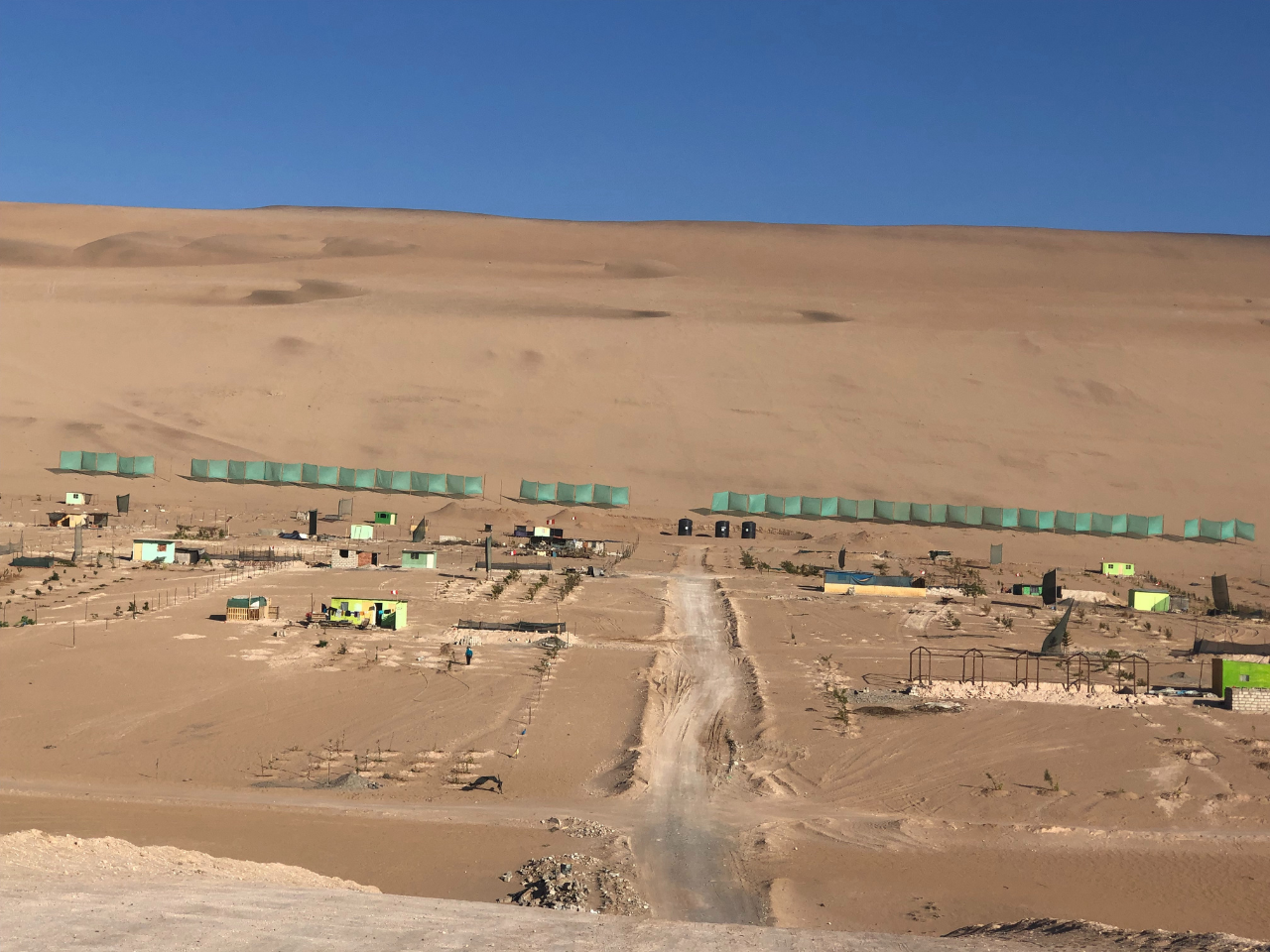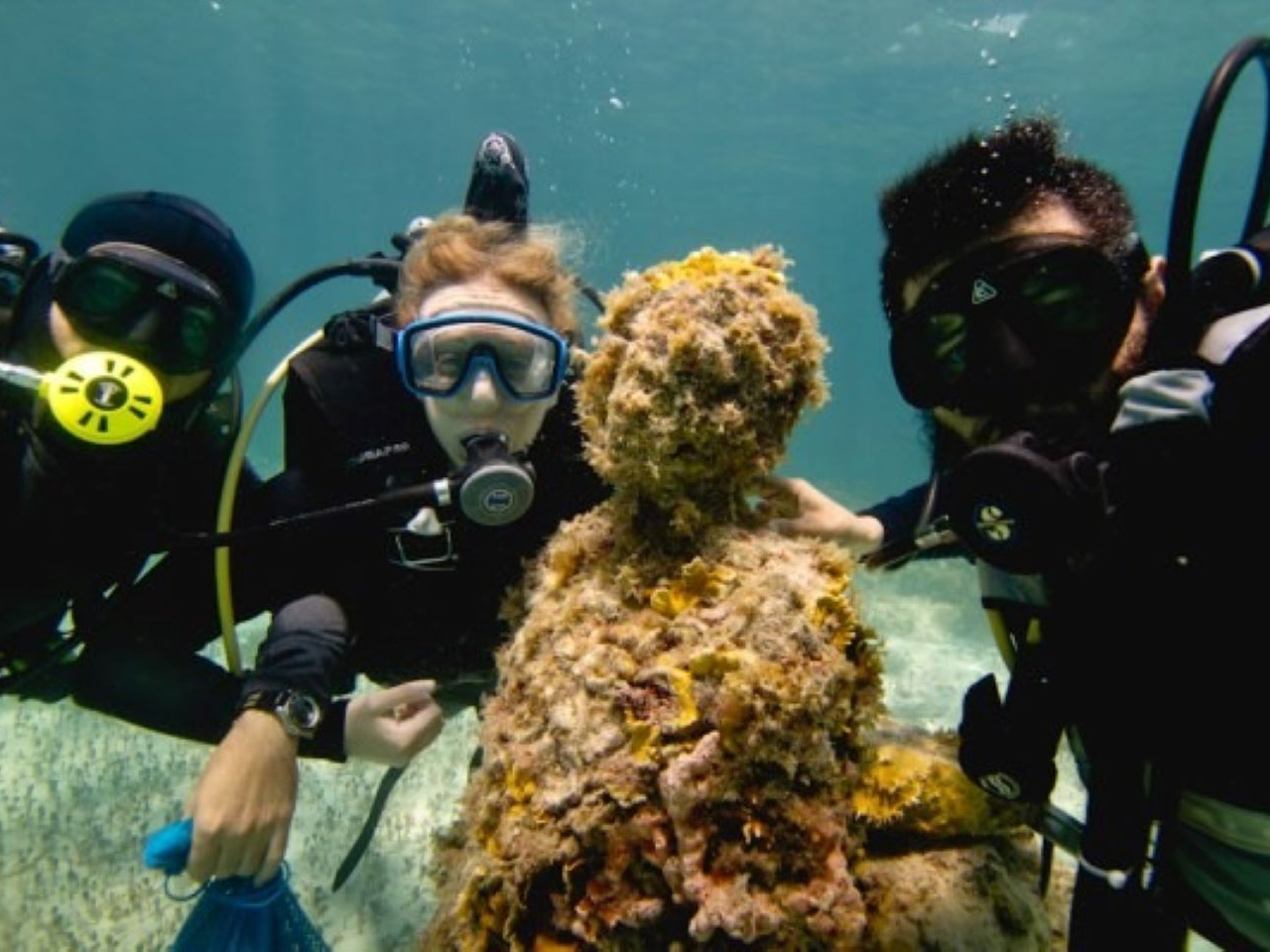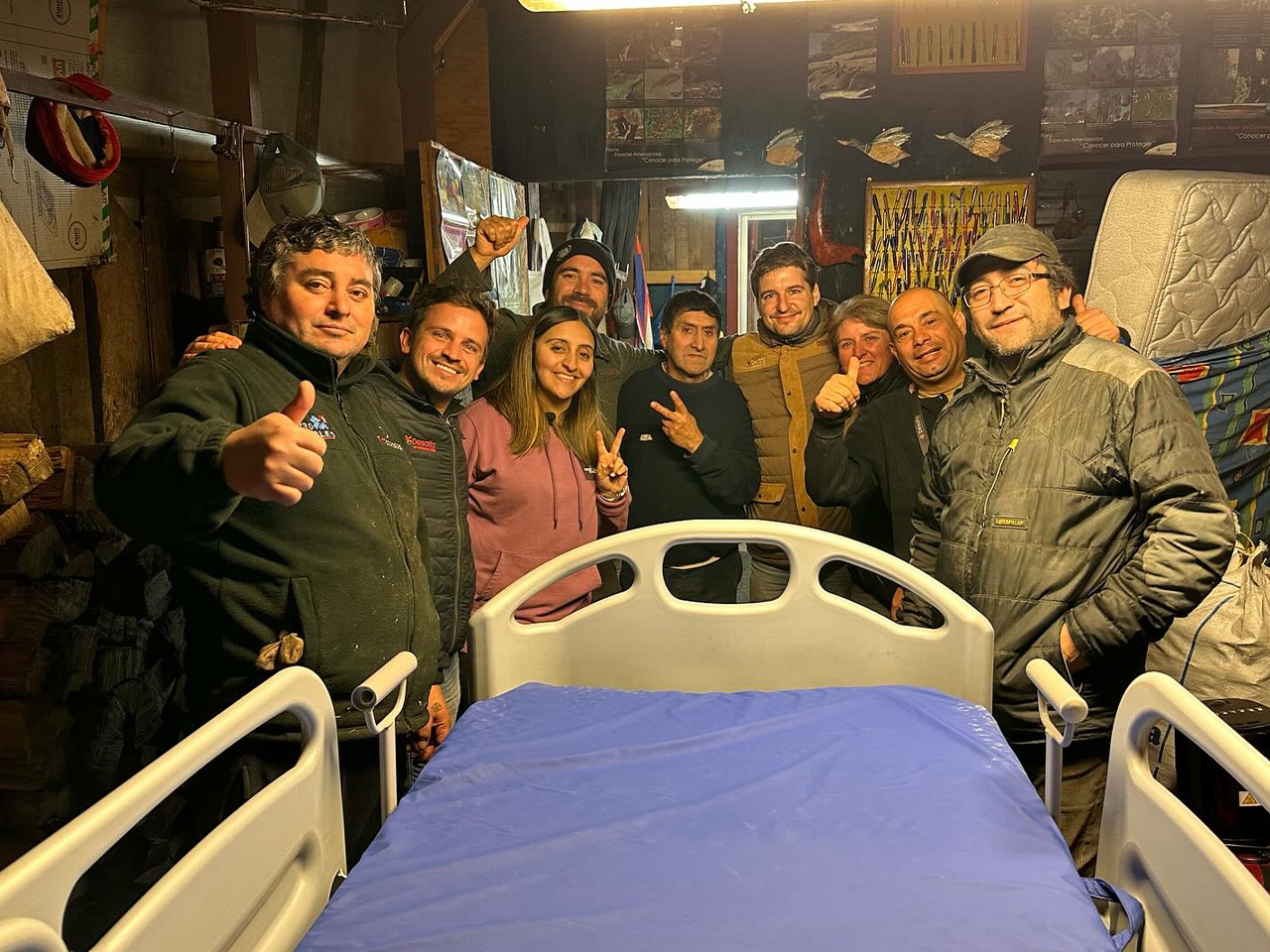“The chilling howls of grief pierced the night”: inside the devastating flood that destroyed Derna
A heaviness weighed on my heart as I joined countless others, searching for missing children amidst a landscape of chaos and confusion. The chilling howls of grief pierced the night, expressing the collective anguish felt by all of us.
- 2 years ago
October 2, 2023

DERNA, Libya ꟷ I stood in shock and disbelief amidst the horrifying aftermath of the flood that destroyed the coastal city of Derna. My beloved home, once celebrated for its enchanting jasmine-scented streets and breathtaking historical buildings, now looked like a desolate graveyard. Deafening screams filled the air.
Surrounded by overwhelming destruction and chaos, I felt my heart sinking in my chest as I faced untold tragedy. Those of us left behind existed in a haunting void – absent entire families inexplicably swept away. Husbands, wives, and innocent children vanished from existence and in their place, we felt the heavy weight of sorrow.
[A port city in eastern Libya, Derna sits on the Mediterranean Sea. When Storm Daniel delivered nearly 16 inches of rain, two dams experienced catastrophic failure. With all the water breaking free at once, tsunami-like flooding swept over the entire city.]
Read more environmental stories from Orato World Media.
I spoke to my cousin moments before, now they’re all dead
When the rain began to pick up that day, I sat in my house on the outskirts of the city chatting with my cousin. He lived in the center of Derna – one of the most affected areas. We had talked about the possibility of flooding in the past.
Unaware of the tragedy about to unfold, we said goodbye for the last time. Moments later, at about 2:30 a.m., the dams broke, and the water raged through the streets. Most of the city’s inhabitants were fast asleep. At first, it felt like a powerful earthquake, as if the dams exploded. We could not have known, in that moment, the totality of what transpired.
Overwhelmed with immense concern for my wife and children, I checked on them first, and found them safe. Then I ran to check on my relatives. Within about 15 minutes of the earth rumbling, I saw the devastation with my own eyes.
The tsunami – filled with debris, rocks, and heavy objects – slammed residential areas, sweeping away everything in its path. Death and destruction were all that remained. It felt like the apocalypse: as if the world came to an end leaving the survivors utterly helpless. These ferocious natural forces trapped everyone. Even those of us who lived could not escape the city. We endured that horror for two and a half hours.
I soon learned the floods claimed the life of my cousin, his wife, and their children. It was as though I was staring down upon the end of the world. The skyrocketing number of casualties devastated me.
As a geologist, I was aware of problems with the two dams in Derna
For some time, the two dams had been deteriorating, desperately in need of maintenance. My colleagues and I reported this multiple times, but no one listened. An earthen dam, rather than a concrete one, can present concerns related to structure. Dams like this require continuous attention. In a concrete dam, cracks and other visible markers can signal a potential problem. That is not the case with earthen dams.
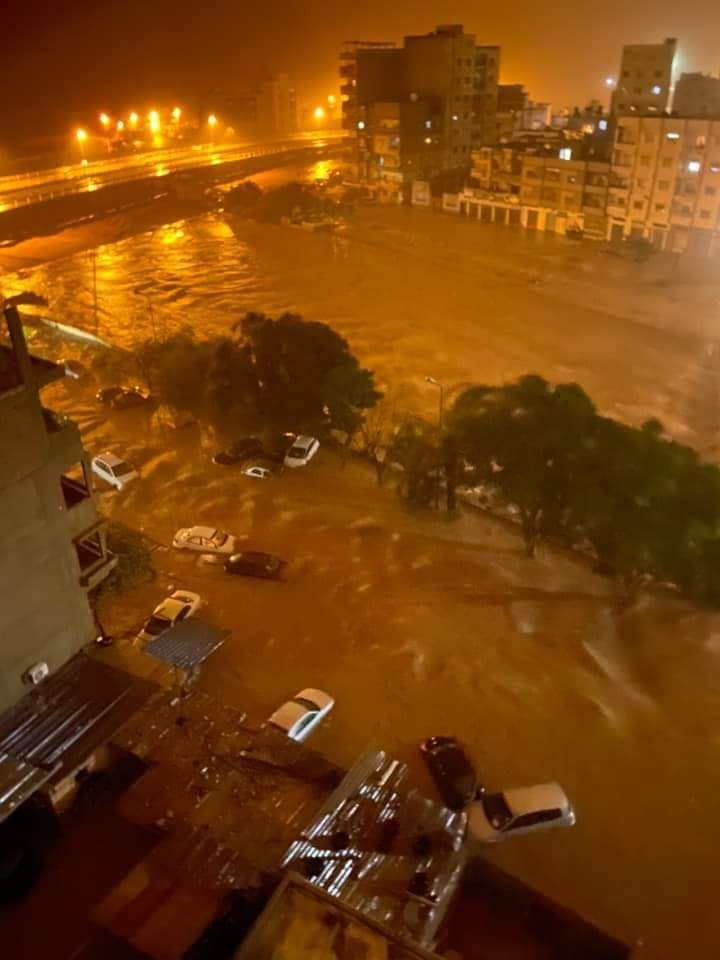
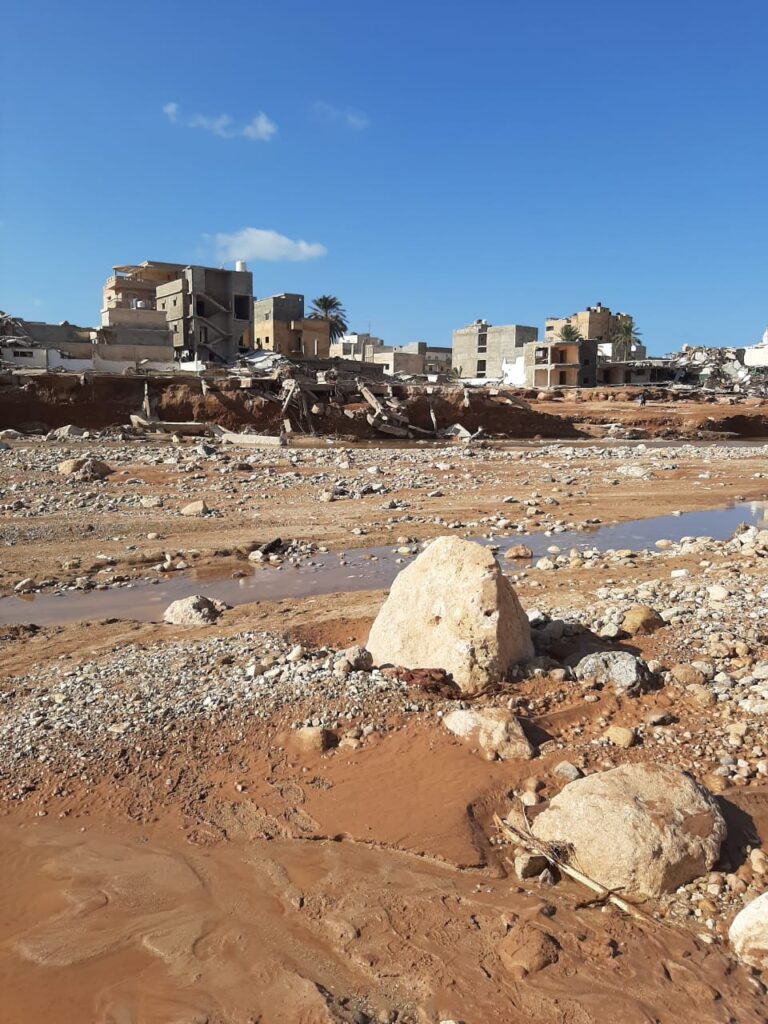
Yet, the worst-case scenario my colleagues and I imagined included localized flooding, rainwater gently infiltrating homes through doorways. We anticipated flooding would mainly affect Benghazi and extend further into the Egyptian desert. However, the rain accumulated behind the crumbling dam and when the levels got high enough, the dams reached maximum capacity. A catastrophic failure ensued.
Ordinary citizens knew nothing about the deteriorating conditions of the dams. Consequently, when the rain came, they falsely believed they had no reason to worry. When the waters broke free and swept over Derna that day, everyone went into shock, even us.
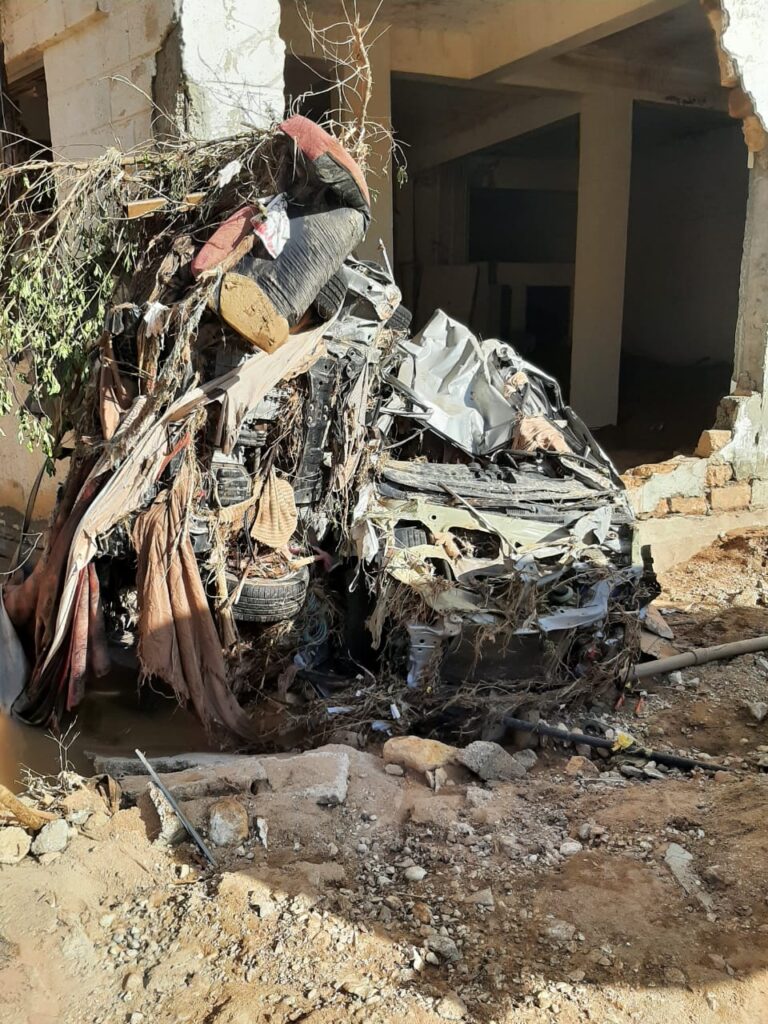
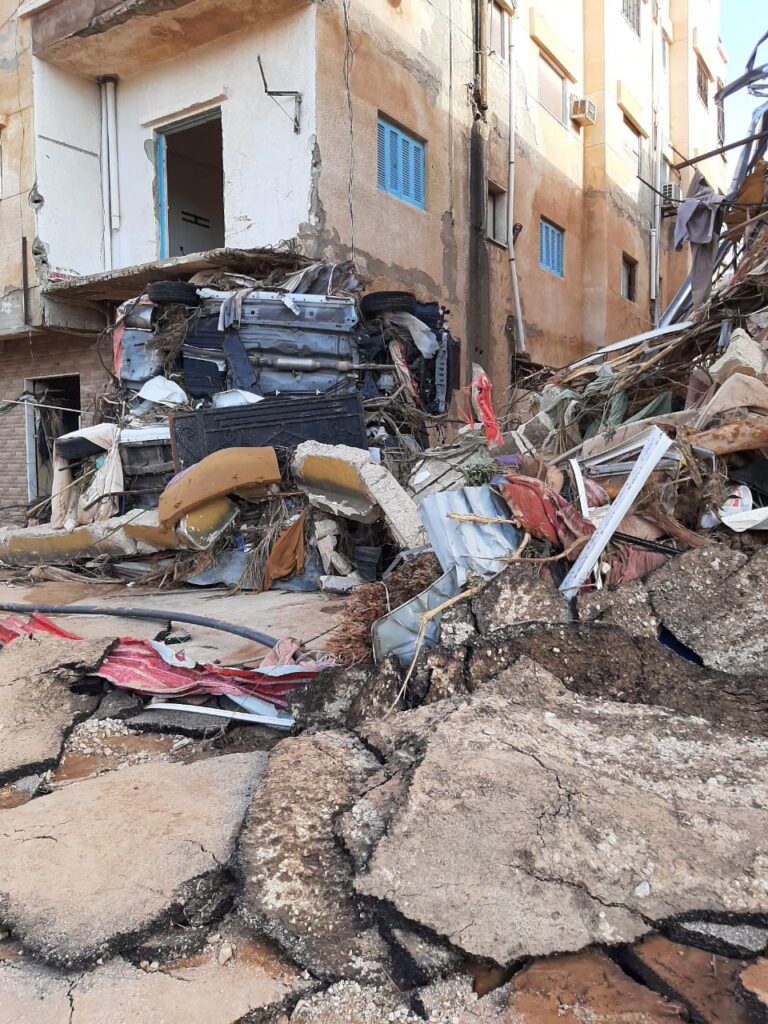
In the wake of this devastating tragedy, I felt the profound loss of numerous loved ones, killed and swept away. A heaviness weighed on my heart as I joined countless others, searching for missing children amidst a landscape of chaos and confusion.
The chilling howls of grief pierced the night, expressing the collective anguish felt by all of us. It seemed unfathomable. Facing so many losses, I no longer know who to cry for. Sad news of lost loved ones comes again and again with the discovery of more bodies.
People from Derna come together to start clean-up
My family originally hails from Misrata [another city 12 to 13 hours east along the coastline], but Derna is the city where I was born and lived my entire life. Now I stand here – a stranger. I recognize nothing. The vibrant streets, once filled with life and laughter, lay silent. The famous scent of jasmine that characterized Derna has been replaced by the stench of death. The floods shattered ancient buildings that bore witness to generations of history.
When the dams in Derna broke, my world crashed to a sudden halt. While the magnitude of destruction still shocks me, I hope we can rise from the ashes. I dream that we will flourish again; that children’s laughter will fill the streets. I know it will be a long and arduous journey, but the spirit of Derna lives in those who remain. We are resilient and unyielding. I believe we will emerge from the depths of despair and embrace the promise of a brighter tomorrow.
Already, we see the power of cooperation and solidarity. People from all walks of life come together; and overwhelming support from the international community shines light in our darkest hour. As a geologist, I have seen the force of nature and its capacity to destroy. When it hits home, it takes on a very different dimension. The things I studied became real.
Some falsely thing the good survive, but saw the passing of many kind and generous people. I now realize how fragile the line between life and death can be. Natures wrath does not discriminate.




